CONSORTIUM
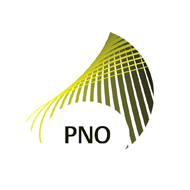
PNO
Netherlands
PNO Consultants B.V. is part of the PNO group. The PNO Group, established in 1984, is Europe’s largest independent Grants and Innovation Management advisory, providing support services to private and public organizations in innovation processes, technology transfer and funding for research, development & innovation. PNO is made up of a pool of around 250 professionals across 6 Member States including scientists, engineers, consultants, a Brussels policy advisory service, as well as financial and legal experts. The growth of the company can be attributed to a unique combination of services, based on profound insight in research, innovation and funding strategies, up-to-date knowledge and 30 years of expertise with more than 500 funding programs in most EU countries. The company has the proven capability to link innovation suppliers and adopters from a unique Europe-wide client network in multiple sectors, using advanced methodologies and proprietary on-line networking.
Main tasks attributed in the project
PNO will take up the role as work package leader for WP7: “Stakeholder involvement, Dissemination and communication” and carry out a substantial part of the required dissemination & stakeholder involvement actions. PNO will provide a WP7 Leader and selected experts with specific dissemination expertise. The provided Dissemination and Stakeholder measures will ensure a coherent external communication and valorisation of the project activities, progress and achievements as well as an optimal management of all key stakeholder relations. Besides PNO will provide a project coordinator, project manager and project compliance officer for WP8: “Project Management and coordination” to realize the smooth implementation of the ARBAHEAT project, to ensure the completion of all deliverables in time and within budget.
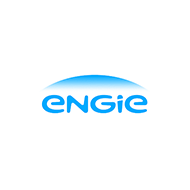
ENGIE
Netherlands
Engie Energie Nederland NV is part of the larger ENGIE group (known as GDF Suez prior to April 2015) is a French multinational electric utility company which operates in the fields of electricity generation and distribution, natural gas, nuclear and renewable energy. The company, formed on 22 July 2008 by the merger of Gaz de France and Suez, traces its origins to the Universal Suez Canal Company founded in 1858 to construct the Suez Canal. Since the merger in 2008, the French state holds approximately a third of the company. It adopted the “Engie” name in April 2015 in order to emphasize the challenges of the energy transition and to accelerate the group’s development. As a global energy player, ENGIE group operates in close to 70 countries on 5 continents being a leader on the energy transition. ENGIE Energie Nederland N.V is the Dutch tranche of the ENGIE Group, delivering (renewable) energy from several power stations.
Main tasks attributed in the project
ENGIE will be Work Package leader for WP2 “Feedstock supply chain development” securing different (low cost) feedstocks for the steam explosion process. As owner of the Rotterdam Power plant, ENGIE will in other work packages be closely involved in critical evaluations of risks and opportunities for operating the demonstration plant and the physical integration of the steam explosion plant with the utilities of the power plant. ENGIE will also be responsible for realizing the heat diversion, transforming the power plant into an CHP.
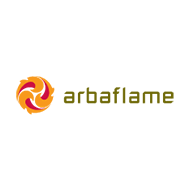
ARBAFLAME
Norway
Arbaflame, a Norwegian technology company, has during the latest 10-15 years developed its proprietary and patented steam explosion process for the production of Arbacore. This advanced steam exploded wood pellet is tailormade for co-firing with coal in existing pulverised coal fired power stations. The privately owned, Norwegian company Pemco is the majority owner of Arbaflame. Pemco is an investment company that holds full- and part ownership in several activities like renewables, packaging, chemicals and others.
Main tasks attributed in the project
ARBA will be work package leader for WP 4 “Site design, development and delivery” which concerns the actual detailed engineering, procurement, erecting and commissioning of the integrated steam explosion plant. ARBA will use their Grasmo pilot facility in Norway for validation purposes and will be closely involved in the envisaged demonstration and testing work, for further optimisation of the prototype.
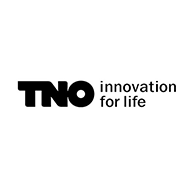
TNO INNOVATION FOR LIFE
Netherlands
Energy research Centre of the Netherlands (ECN) is the largest (non-profit) energy research institute in the Netherlands. ECN develops new technology and conducts pioneering research in various ways into innovative solutions to facilitate the transition to sustainable energy management. With around 500 members of staff, we are active in projects both at domestically and abroad, in joint efforts with the industry, government authorities and research institutes. We do this from our locations in Petten, Amsterdam and Eindhoven. ECN’s research has a major influence on day-to-day life. In this, we perform an important role for the society of today and the future.
Main tasks attributed in the project
ECN will join this project primarily as technical expert on thermochemical biomass upgrading and the use of -derived fuels within coal-designed power generation infrastructure. ECN will first conduct experiments in the Lab-scale Combustion Simulator and the corresponding lab-scale analyses for the characterization of the feedstocks and fuels envisaged for the use in the combined demonstration plant. This will be done in order to assess and limit the risks associated with the use of the envisaged fuel (to be delivered by the pilotscale ARBAFLAME Grasmo plant. This information will then feed into the design and engineering of the demonstration plant at ENGIE Rotterdam site. After the demonstration plant starts operation ECN will lead the analytical effort covering the whole utilization chain (WP5) in order to optimise the combined operations. These on-site measurement campaigns will specifically target feedstock, intermediates and fuel handling, in-boiler performance and in-stack emissions measurements. Data obtained in this way will be used for an integral technical, economic and environmental impact evaluation of the demo plant, towards further market penetration.
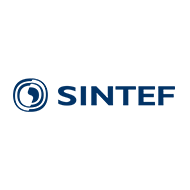
SINTEF
Norway
SINTEF Energi AS (SINTEF-ER) is part a legal entity within the SINTEF Group, one of the largest independent research organizations in Northern Europe, and is a non-profit research organisation. The institute carries out R&D with the aim of promoting cost-effective and environmentally sound solutions for energy use and the supply of heat and power. SINTEF-ER has a leading national position as an RTD provider within energy efficiency, energy processes, gas technology, thermo- and fluid dynamics, combustion and thermo-chemical conversion processes. The high-level technical profile developed by the institute, via activities such as assisting the Norwegian Parliament (Storting) to achieve its cross-party Climate Change Policy Consensus, means that its research community is now at the forefront of European energy research.
Main tasks attributed in the project
SINTEF-ER will lead both WP6 and WP1, focusing on techno-economic analysis (including environmental assessment) and will be primarily involved in the following tasks (as well as dissemination activities): – Process analysis – Design & engineering – Operation and maintenance – Cost analysis – Risk and viability analysis.

VUB
Belgium
The Vrije Universiteit Brussel (VUB) is a competitive, high-quality, socially committed and internationally oriented university located in Brussels. The core activities of VUB are education, research and social services. The university has about 14,000 students and more than 150 research groups, including research groups that are absolute world leaders in their field. The university and its hospital have 6.000 employees. The university is an avid participant in European and in particular FP7 and H2020 projects. They have currently about 100 running research projects at VUB which are funded by the European Union.
The Joint Research Group on Combustion and Robust Optimisation (BURN, http://www.burn-research.be) includes 7 Professors, 3 post-docs or invited scientists, and 25 PhD students. This group focuses on the “combustion 2.0” framework which aims at solving the pollutant-efficiency-flexibility trilemma using robust combustion solutions. BURN is active in numerical simulation of combustion and thermal processes, but also in onsite implementation of advanced and sustainable combustion technologies, in strong collaboration with industrial partners.
Main tasks attributed in the project
VUB will be work package leader for WP 3 “Heat and power production modes”. This will include:
– Thermodynamic modelling of the demo plant and its heat clients
– Prediction of heat and power production modes
– Modelling of the dynamic behaviour of the heat roundabout
– Load flexibility of the CHP unit
VUB will also be active in WP5 “Operation optimization and validation”, as a support to ECN, ENGIE and ARBA for the interpretation of the lab-test results and during the full-scale tests conducted in the Demo plant.
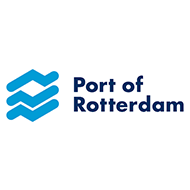
PORT OF ROTTERDAM
Netherlands
The Port of Rotterdam Authority (Havenbedrijf Rotterdam N.V.) creates economic and social value by working with customers and stakeholders to achieve sustainable growth in the world-class port. We continually improve the port of Rotterdam to make it the safest, most efficient and most sustainable port in the world. We create value for our customers by developing logistics chains, networks and clusters, in both Europe and growth markets Worldwide. The Port of Rotterdam Authority will create a vital area offering excellent business conditions for both existing and new customers, extend the international port network, and focus on the development of sustainable and efficient logistics chains, clusters and modes of transport.
Main tasks attributed in the project
The PoR team will mainly act as a liaison to identify potential future partners in the port area for the converted CHP for the feedstock, heat and condensate.
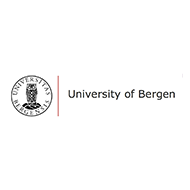
UNIVERSITY OF BERGEN
Norway
The University of Bergen (UiB) is an internationally-recognized research university. Academic diversity and high quality are fundamental for us. UiB is the most cited university in Norway. There are seven faculties at UiB and there are a total of 16 400 students at the university. Around 1 550 of these are international students. We employ 3 600 staff. PhD candidates are paid employees of staff, making the doctoral degree at UiB particularly attractive for rising talent.
At the Department of Chemistry, the eight research groups reflect the span in research activities, from fundamental molecular-level theoretical and spectroscopic investigations, synthesis and investigation of complex organic molecules to applied studies related to petroleum exploration and the chemical process industry. The research in this project will be done by the Biofuels research group which belongs to the Petroleum and Colloid Chemistry research unit.
Main tasks attributed in the project
UiB will focus on condensate upgrading and valorization in WP5. UIB will employ a state-of-the-art NMR procedure to identify and quantify the dissolved organic compounds in condensates from different feedstocks for further valorization.
CONTACT US
For more information or questions
